How to keep store-bought herbs alive indoors – 5 tips for freshness and flavor
Make the most of potted grocery-store herbs with this expert advice
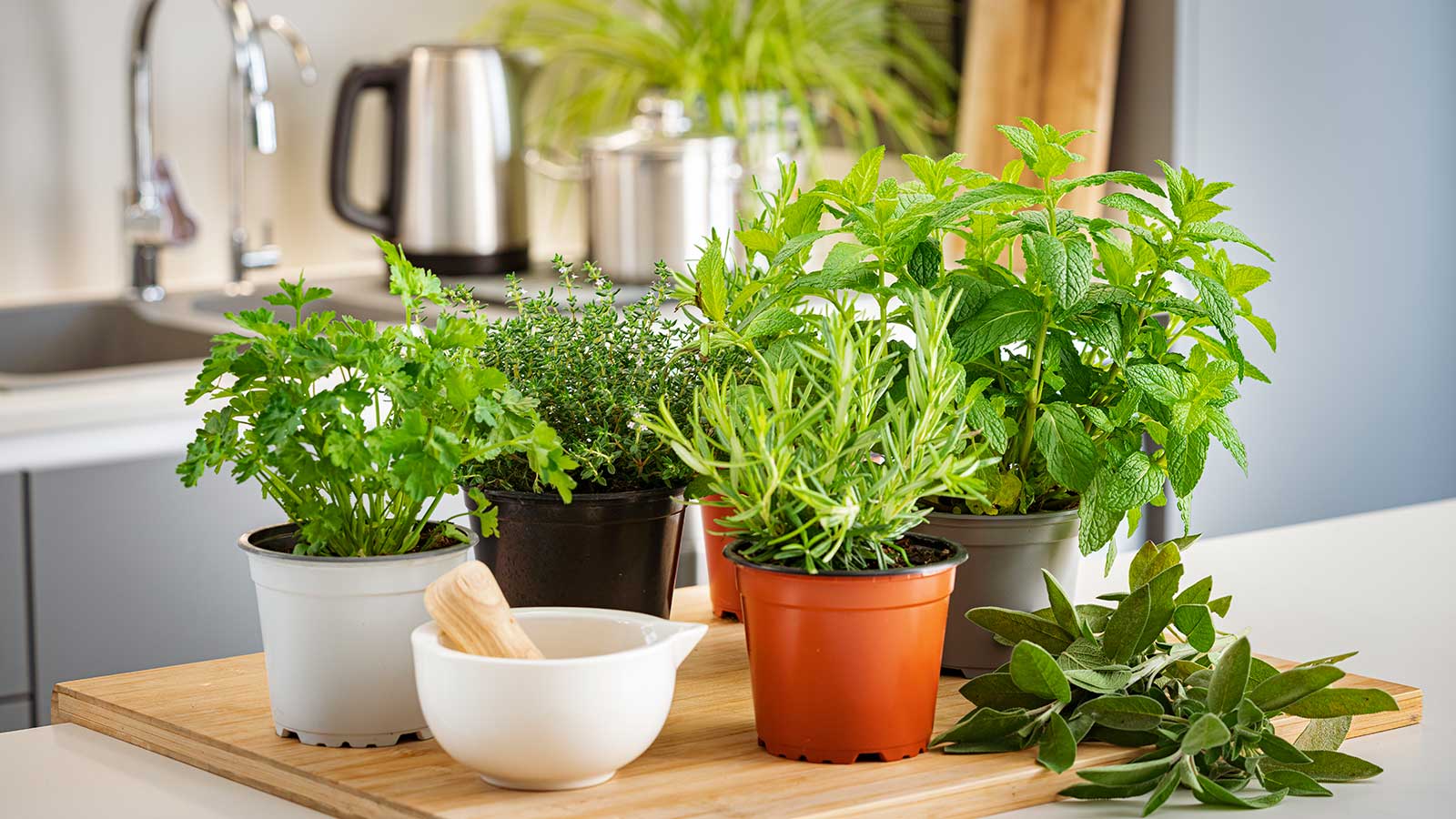

Have you ever bought a potted herb from a grocery store? They're an enticing way to give your kitchen a dash of greenery and your home-cooked meals a boost, but their lifespan is disappointingly short. True, they last longer than those pre-cut herbs packaged in plastic wrap. But still, after a week or so, most are ready for the compost heap.
The main reason behind this is that a shelf in a store is far from the optimum growing conditions for these plants. This means, if you want them to survive beyond the usual expectations, they need a good dose of care once you get them home.
Nursery-grown herbs are undoubtedly more reliable additions to an indoor herb garden. But, there's no harm in trying the following tips next time you pick up a potted herb from your local store. With a bit of luck, you'll be able to harvest from it for weeks, or even months – and it'll stay looking pretty, too.
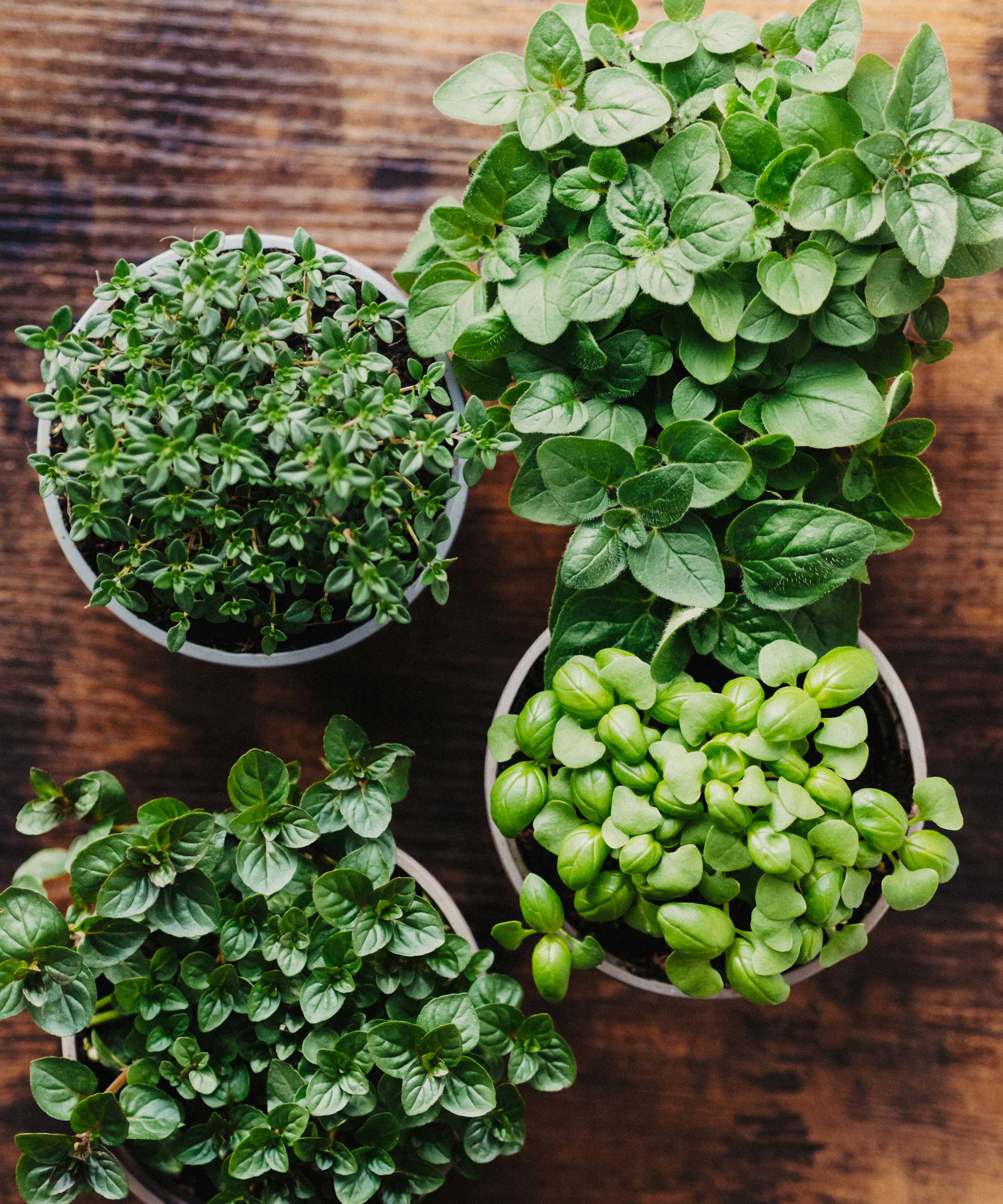
Store-bought herbs can last longer than expected, if you give them the right care
5 ways to keep your store-bought herbs happy
Look after these kitchen plants carefully and you may be rewarded with a fragrant and flavorsome harvest for longer.
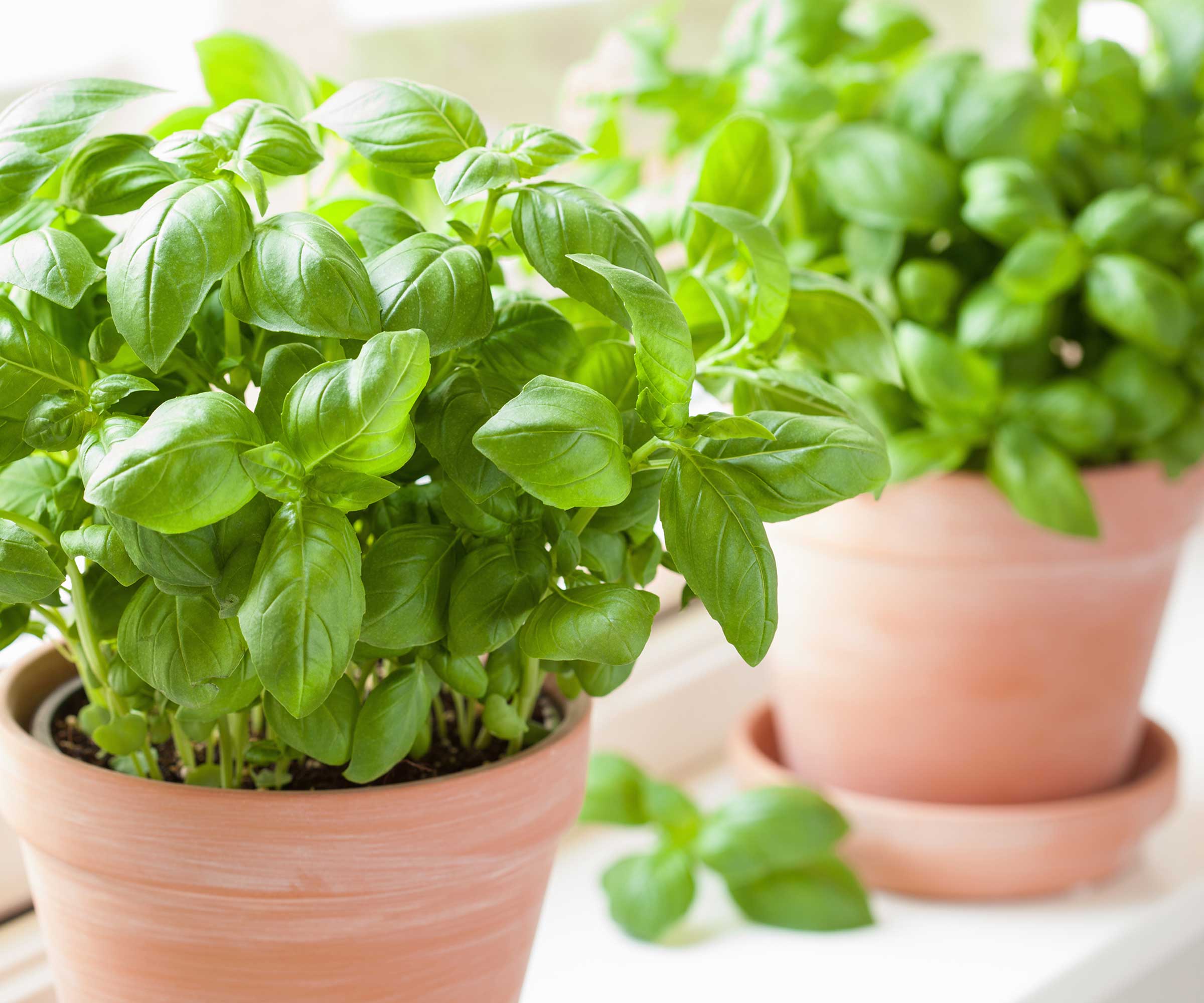
Basil is a popular herb that's great for pasta dishes and pizza
1. Choose healthy plants
The first step in keeping store-bought herbs alive starts before you've even bought them.
A quick inspection can help you choose the ones with the best chance of survival beyond a few days. Avoid ones with brown or wilted leaves, or any that are overly leggy. These are all signs that they are struggling and will be difficult to rejuvenate.
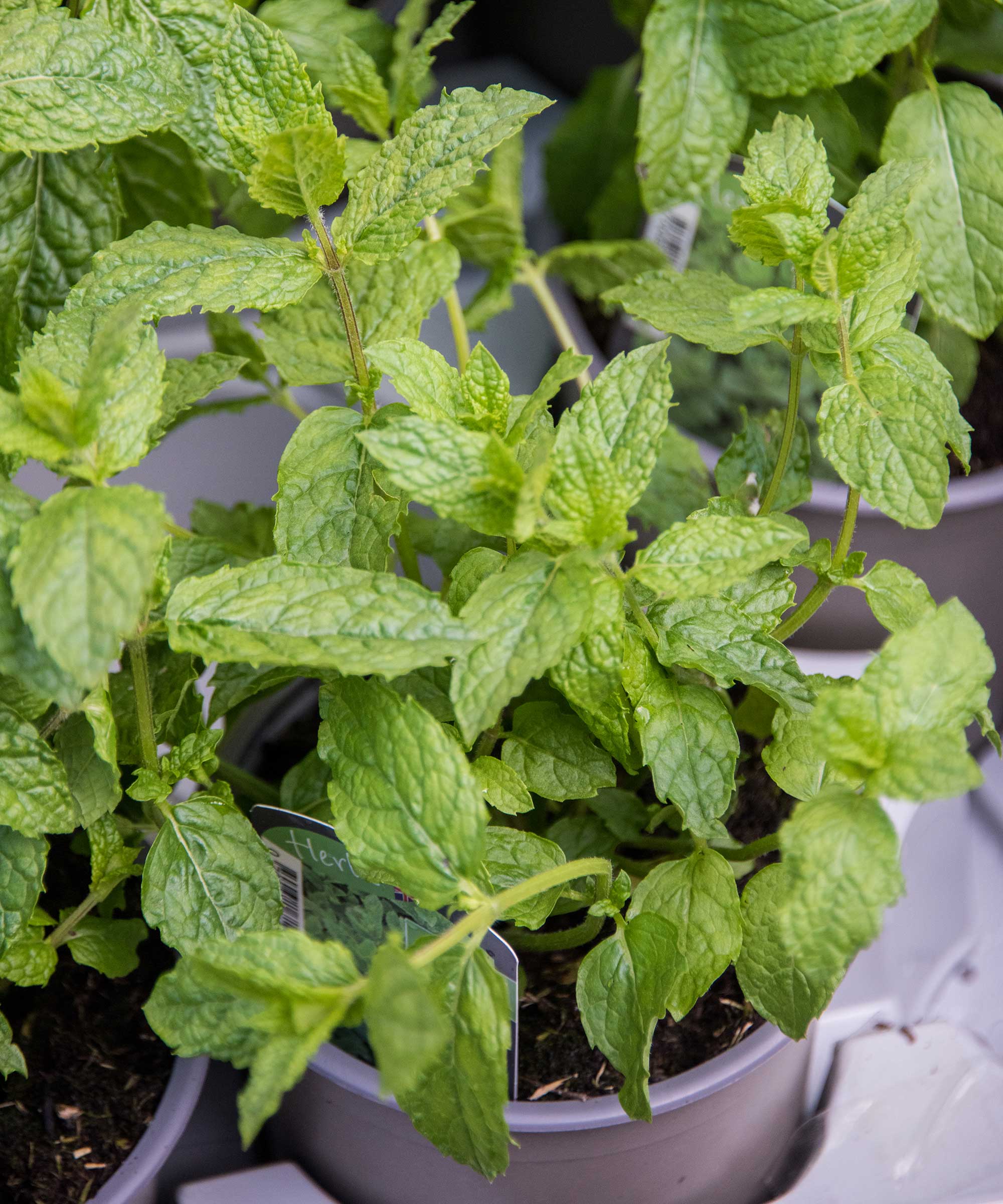
Select your herbs carefully
2. Divide your herbs into smaller pots
'The number one tip I would give when trying to keep store-bought herbs alive is to take them out of their pots and separate them into smaller plants,' advises gardening expert Ben Meakin. They are often incredibly overcrowded, which can quickly cause them to deteriorate.
You should be able to gently pull them apart with your hands. Ensure each section has a good system of roots attached. You can then pot them in separate containers filled with a potting soil that's suitable for herbs.
They will stand a much better chance of growing and thriving, Ben says.

Ben Meakin is the owner and founder of Wonky Shed, a growing and well-respected gardening website. With over a decade of growing experience, from dahlia tubers to tomatoes, Ben is well-versed in all of the ups and downs that come from being green-fingered.
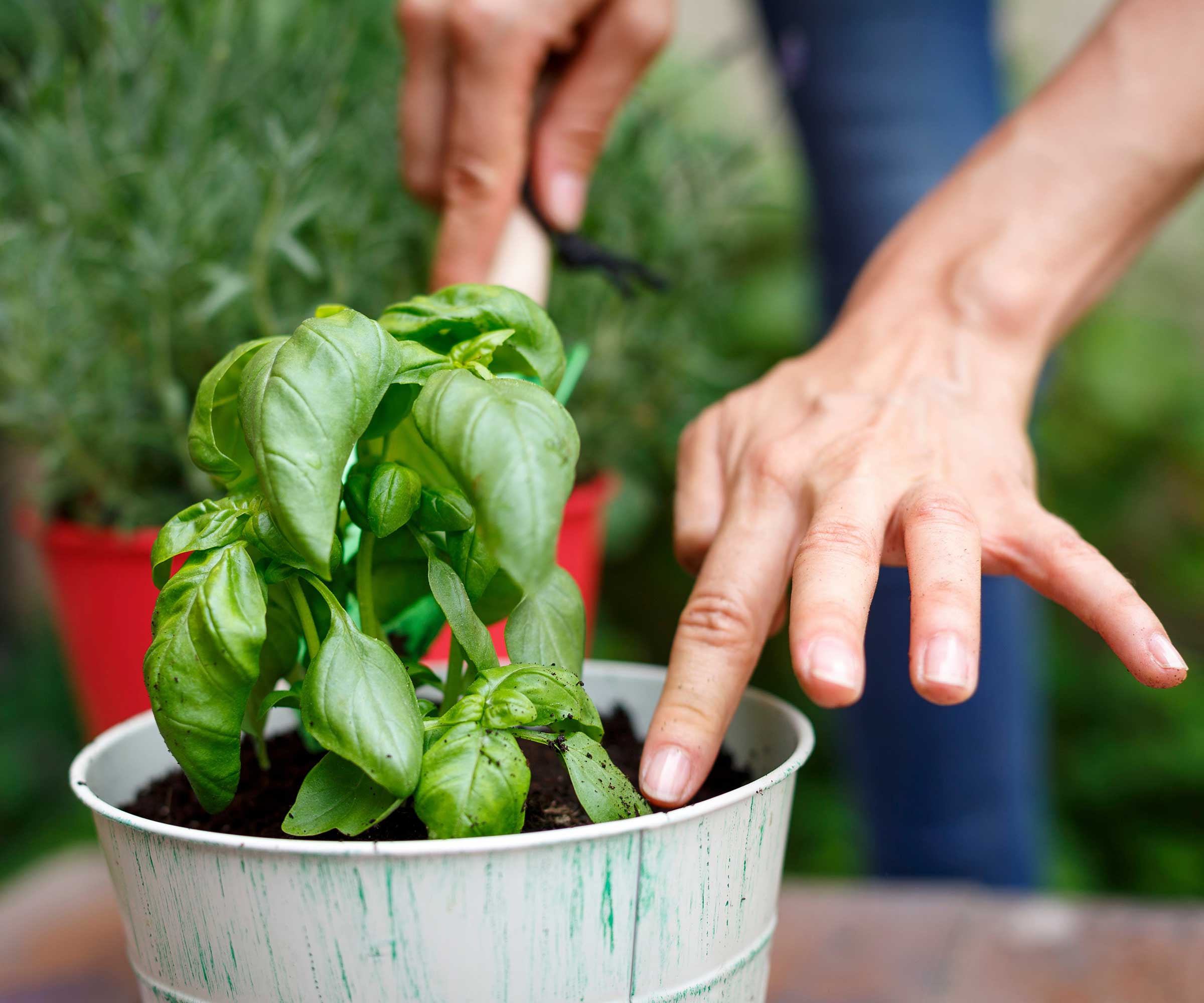
Repotting your herbs is key
3. Don't harvest too much at one time
It's tempting to snip away at your herbs as soon as you get them home, throwing their leaves into every dish possible. But with this approach, they won't last long. So, while regular harvesting will help to encourage new and bushier growth, it needs to be carried out in the right way.
Autumn Hilliard-Knapp of Perfect Plants Nursery advises harvesting just the top growth. Avoid removing more than one-third of the plant at one time, she adds.

Autumn is a horticulture specialist and marketing professional at Perfect Plants Nursery. With four years of experience in the horticulture industry, she has developed a passion for helping people create beautiful indoor and outdoor spaces to enjoy. Her expertise in horticulture encompasses a broad range of activities, including plant care and selection, landscape design, and maintenance.
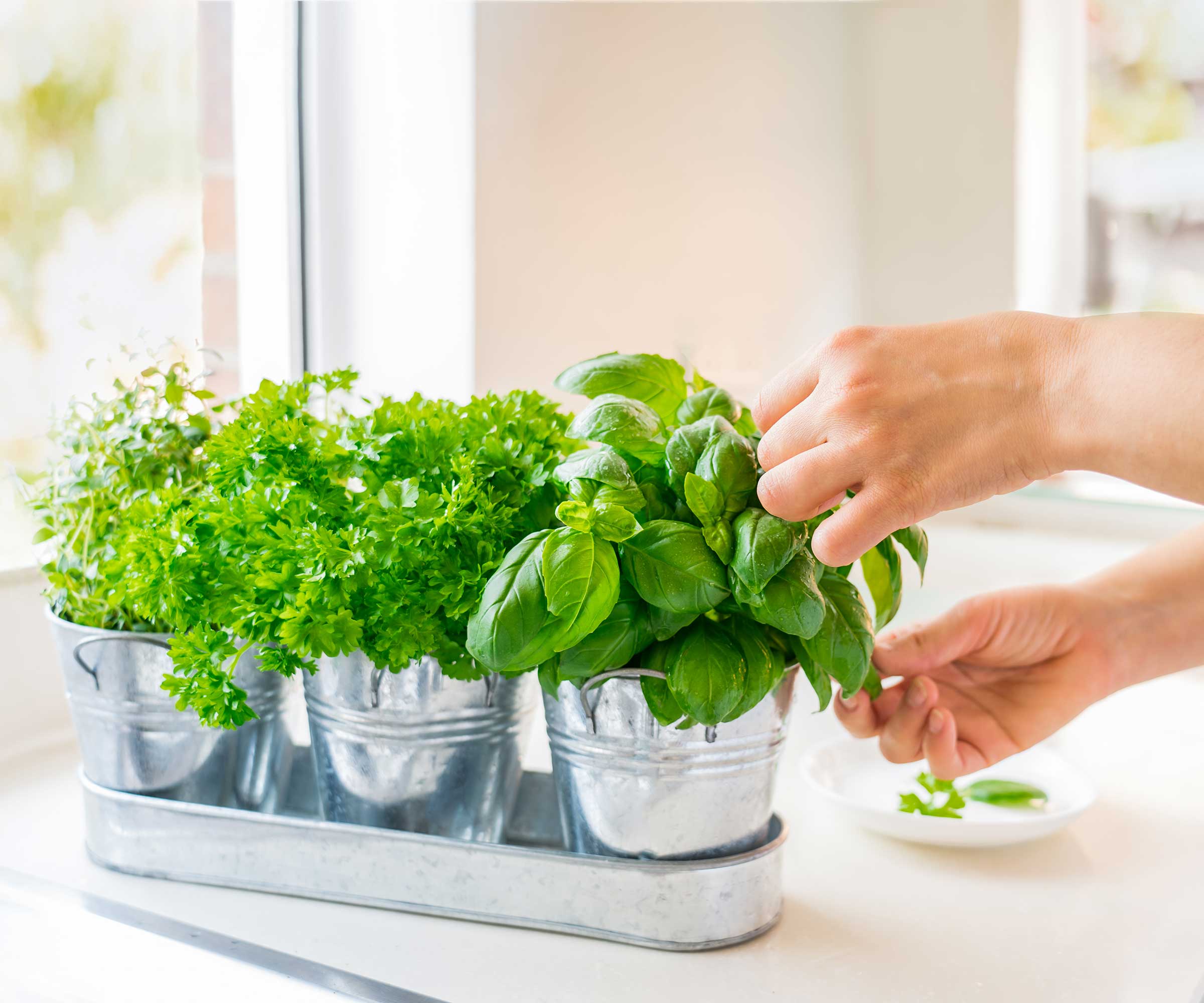
When harvesting your herbs, leave enough of the foliage so that the plants can continue to grow
4. Remember to water them, but not too much
Waterlogged soil can be fatal to any indoor plant – herbs included.
It's a good idea to give your herbs a light watering once you repot them, as it's likely they haven't had much to drink in the store. But after this, proceed with caution.
'Water the herbs when the top inch of soil feels dry, but be careful not to overwater, as it can lead to root rot,' says Autumn. The potting soil should be well-draining – and ensure the container they're in has drainage holes, too.
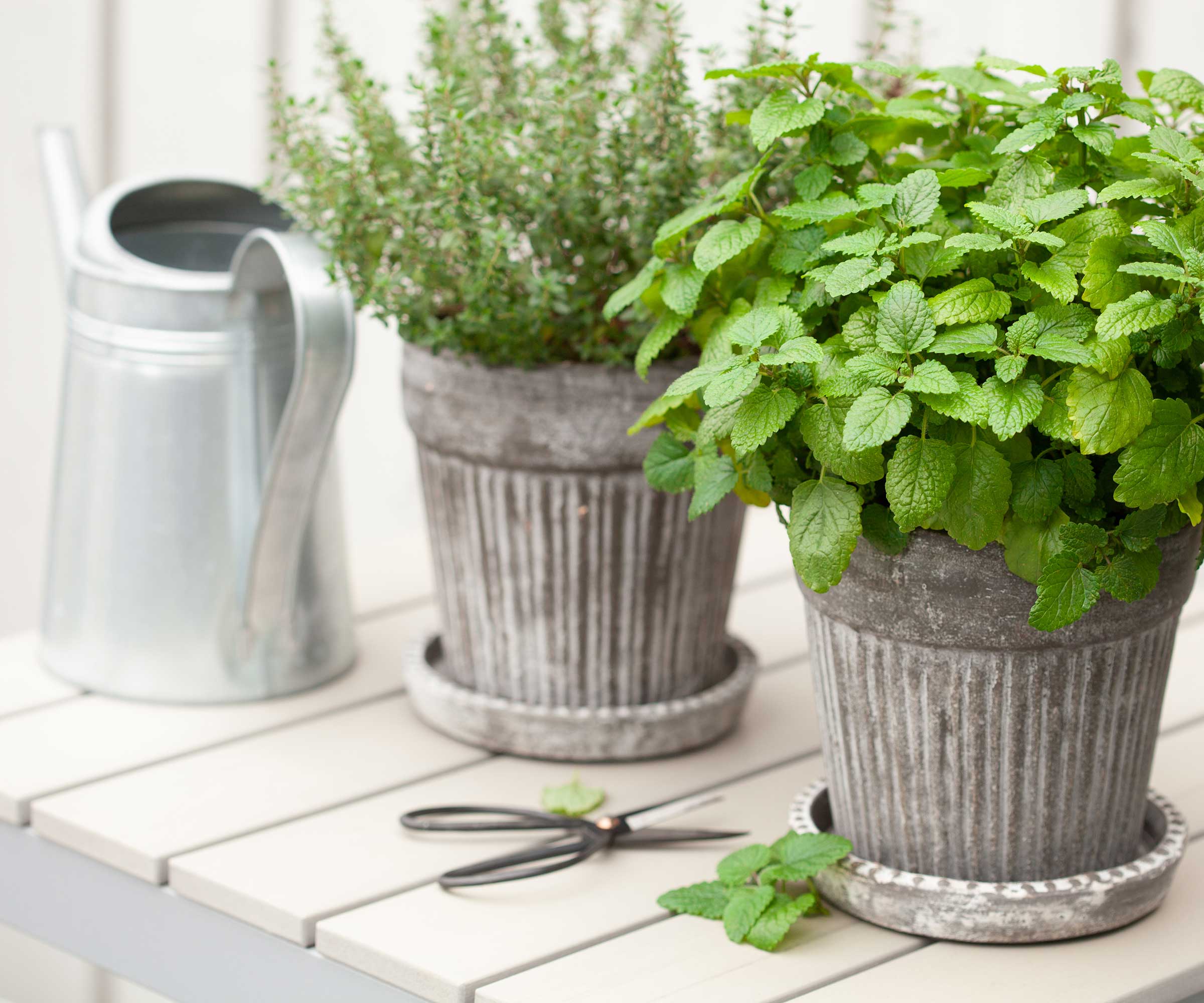
While watering herbs is essential, avoid over-saturating the soil
5. Keep them somewhere sunny
Whether you're growing rosemary, mint, basil, or any other herb indoors, they need to get enough light. A sunny kitchen windowsill is usually just right.
'If natural light is limited, supplement them with full-spectrum LED grow lights, maintaining a distance of 6-12 inches above the herbs,' says Robin Phelps, a gardening and preserving coach. The GooingTop LED Grow Light from Amazon is well-rated.

Robin Phelps is a gardening and preserving coach at Sowmanyplants.com, with a passion for nurturing green spaces and preserving the bounties of nature. With over 20 years of experience in gardening, Robin began her journey in a small apartment with a balcony and has now expanded to growing on three acres.
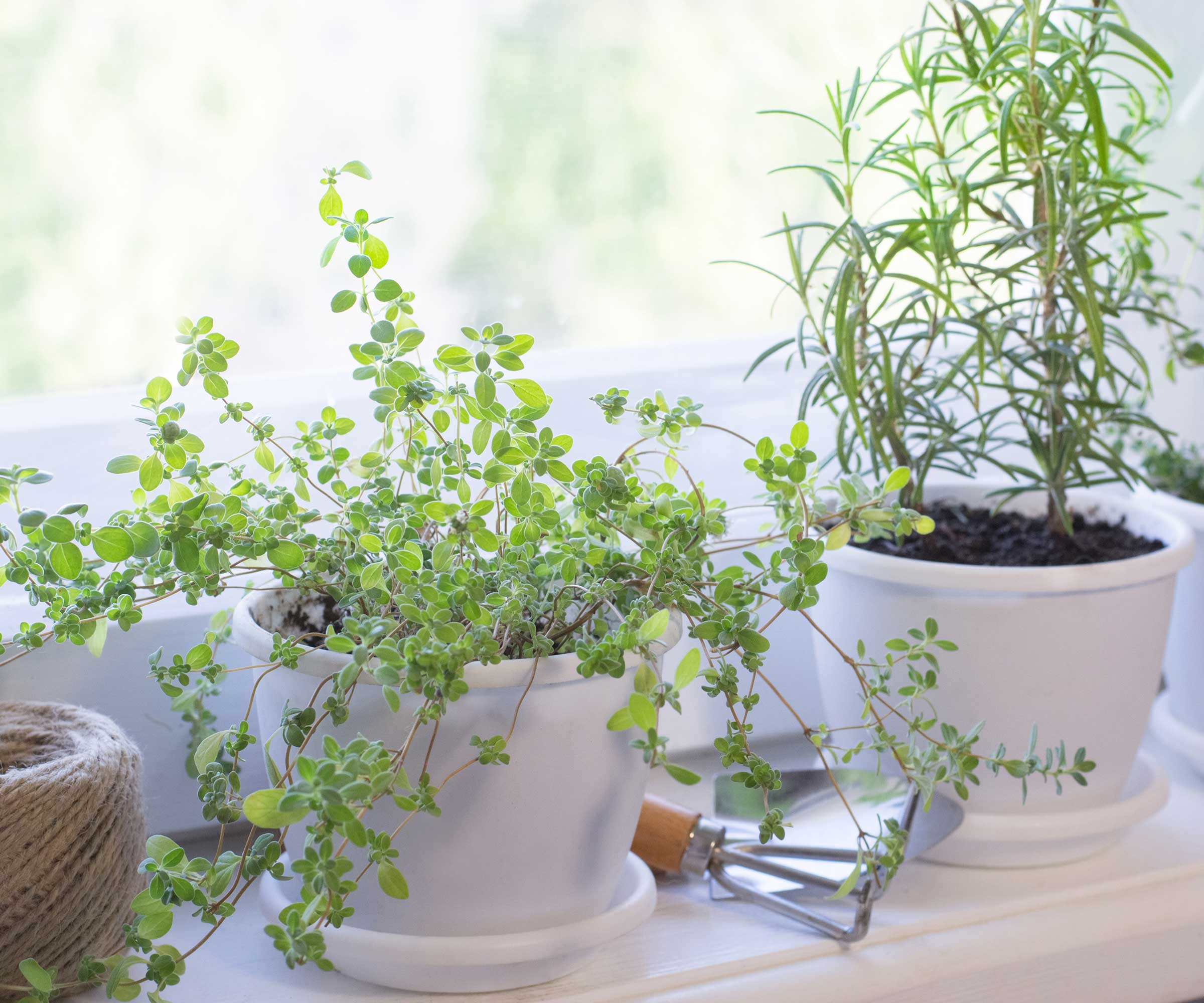
Herbs need plenty of bright light to thrive
FAQs
Can you propagate store-bought herbs?
You can propagate herbs like basil and mint from cuttings, says gardening coach Robin Phelps. 'Snip a healthy stem, remove the lower leaves, and place it in water until roots develop.' They can then be transferred into pots. Alternatively, plant the fresh cuttings directly into pots of gritty soil.
Can you plant herbs bought from the grocery store outdoors?
Yes, it is possible to plant store-bought herbs outdoors. Separate, repot, and care for them initially indoors, then gradually acclimatize them to outdoor conditions. If winter is approaching, however, it's best to wait until warmer temperatures return – cold, wet weather may be too much for them.
If you like the idea of having a bounty of fresh herbs, why not try growing some from seeds, too? There are so many types to try, including drought-tolerant varieties, and seed packets are inexpensive.
Sign up to the Homes & Gardens newsletter
Design expertise in your inbox – from inspiring decorating ideas and beautiful celebrity homes to practical gardening advice and shopping round-ups.

Holly started writing about gardening five years ago, and she is a regular contributor to Homes & Gardens. She has also written many gardening features for Woman & Home and Real Homes, too. She has previous experience as a professional gardener, where she helped to plant and maintain private gardens. Holly has also looked after allotment plots over the years and loves to grow her own flowers and veggies from seed. In her spare time, she enjoys visiting local gardens, botanical drawing, and tending to her ever-growing collection of houseplants.
-
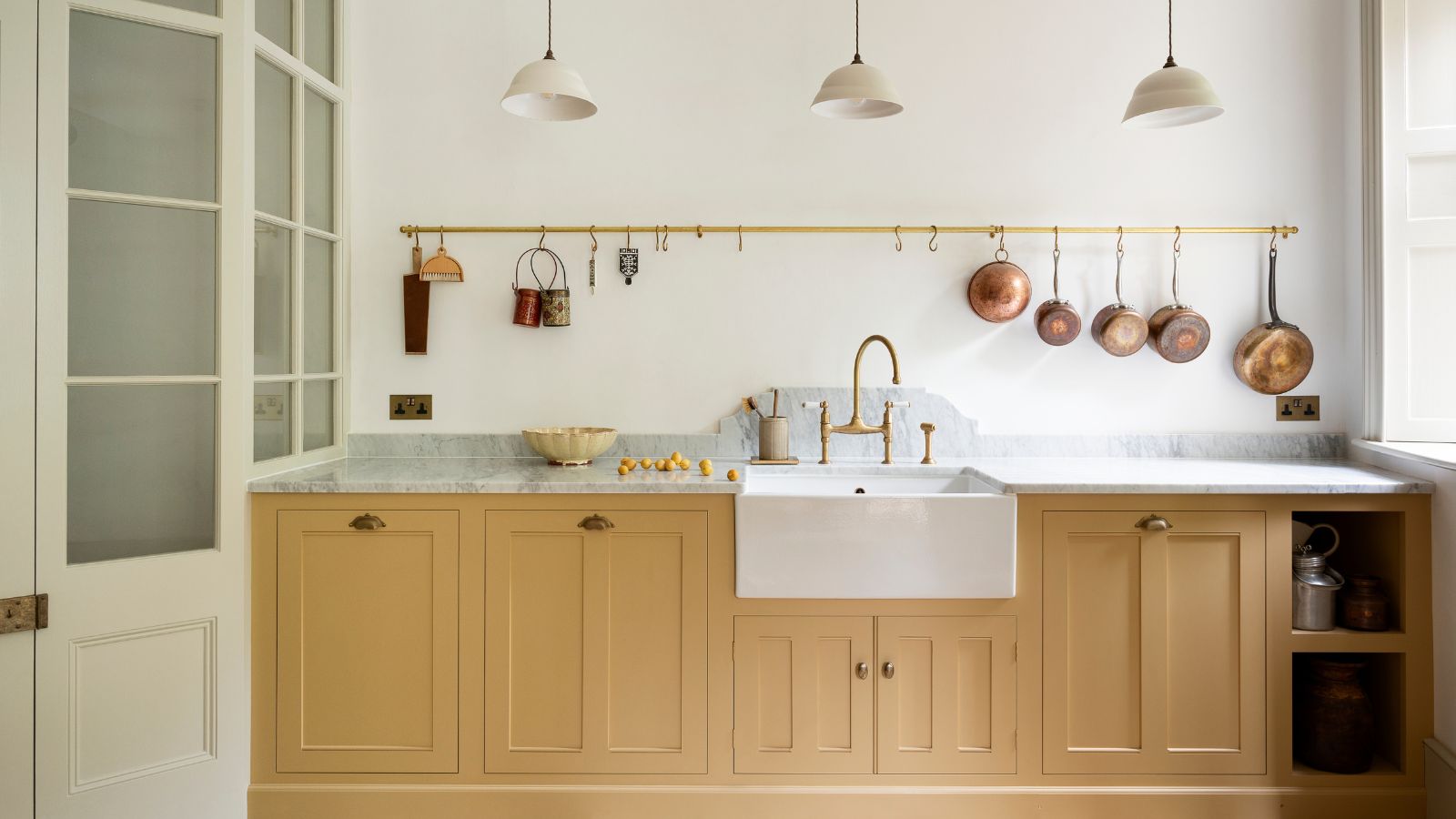 What colors go best with butter yellow? 8 equally delicious shades to pair with spring's hottest color trend
What colors go best with butter yellow? 8 equally delicious shades to pair with spring's hottest color trendInspired to elevate your home this spring with chic pale yellows? Here are the best colors to complete your scheme
By Emily Moorman
-
 Sarah Michelle Gellar's entryway is tranquil and elegant thanks to white and wood accents – her neutral style is replicable from $33
Sarah Michelle Gellar's entryway is tranquil and elegant thanks to white and wood accents – her neutral style is replicable from $33The actress's entryway features a wood console table, wood floors, and crisp, white paint for a warm and inviting atmosphere
By Hannah Ziegler